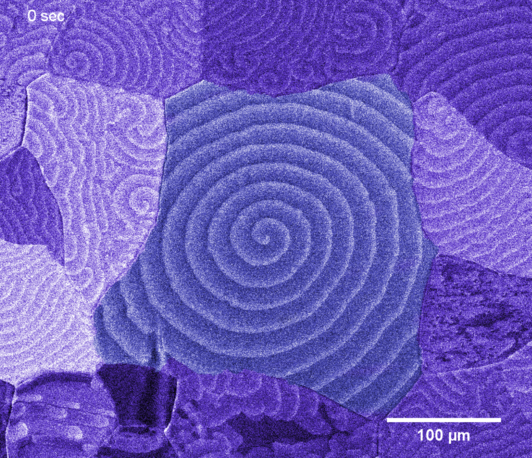Observing while it happens: Operando Electron Microscopy in Catalysis Research
- Date: Jan 30, 2024
- Time: 05:00 PM - 06:00 PM (Local Time Germany)
- Speaker: Prof. Marc Willinger
- Location: Max-Planck-Institut für Eisenforschung GmbH
- Room: Big Seminar Room / Online

Our aim is to understand processes that lead to the emergence of catalytic
function though direct observation using a combination of operando scanning and
transmission electron microscopy.
Starting with simple model catalysts, such as polycrystalline metal foils, we
observe the propagation of chemical waves and reveal how catalytic activity
depends on grain orientation, coupling mechanisms and reaction conditions.
In the case of redox-reactions on non-noble metals, we find that the active
catalyst is operating near a phase-boundary where metallic and oxidized phases
co-exist. Real-time imaging reveals fascinating oscillatory redox dynamics
that increase in complexity with increasing chemical potential of the
gas-phase. When moving from simple model catalysts to industrially relevant
metal nanoparticles supported on reducible oxide carriers, we apply in-situ
transmission electron microscopy to study effects related to a strong
metal-support interaction (SMSI) under reactive conditions. Using the
archetypical titania supported platinum nanoparticles as a reference system,
and hydrogen oxidation as model redox reaction, it will be shown that the
well-described encapsulated state of platinum particles is lost as soon as the
system is exposed to a redox-active environment. Structural incoherence at the
platinum-titania interface lowers the barrier for redox processes, which give
rise to dynamic reconstructions and particle migration. The particle
orientation on the support determines the structure of the interface and the
resulting particle dynamics, migration, and sintering behaviour. The aim of the
presentation is to demonstrate that active catalysts are dynamically adapting
to the reaction environment and that catalytic function is related to the
catalysts ability to participate in the reaction through reversible changes in
its structure and/or (local) composition.
Register here: https://plan.events.mpg.de/event/145/
Marc Willinger studied physics at the Vienna University of Technology and received his PhD from the Technical University of Berlin for work carried out at the Fritz Haber Institute of the Max Planck Society in Berlin. After a post-doc at the University of Aveiro in Portugal, he returned to the Fritz Haber Institute as a group leader and started to develop and implement tools for multiscale operando electron microscopy. In 2018, he accepted a position as technical director at the Scientific Centre for Optical and Electron Microscopy (ScopeM) at ETH Zurich. Since 2022 he is full professor at the Technical University of Munich. Marc Willinger is interested in the relationship between structure/composition and the resulting physical/chemical properties of materials, in particular the emergence of synergistic effects and non-linear dynamics in non-equilibrium material systems.